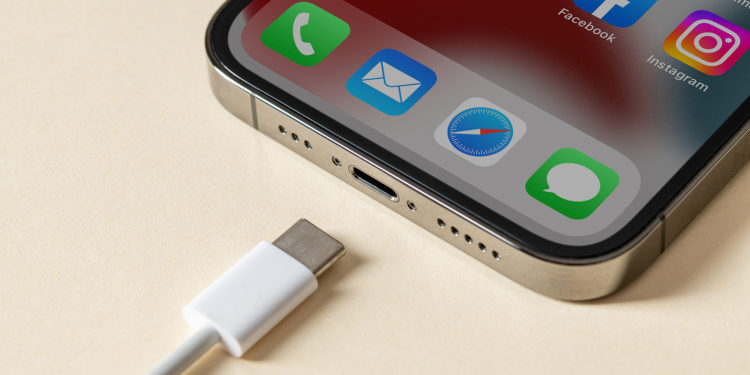The European Union requires that all iPhones and other electronic devices, including tablets, must be equipped with USB-C by the end of 2024 at the latest.
The EU's long-discussed plan to require manufacturers of smartphones, tablets, cameras and other devices to use a common standard for charging ports has now become law. It was passed by the EU Parliament on October 4, 2022 with 602 votes in favor, 13 against and 8 abstentions. An EU spokesperson explained included:
The common charging point is finally becoming a reality in Europe. We have waited more than ten years for this law but now we can finally leave the current chaos of chargers behind. This future-proof law will enable the development of innovative charging solutions in the future and everyone will benefit from this - from frustrated consumers to our fragile environment. These are difficult times for politics but we have shown that the EU has not run out of ideas and solutions to improve the lives of millions of people in Europe and inspire other parts of the world to follow its example.
The EU has not committed to a date beyond the end of 2024. However, the new law must be formally approved and published to enter into force 20 days later. EU member states have a total of 24 months to adopt the law, meaning it can enter into force in November 2024 at the earliest.
New EU law: These products are affected
The EU has stated that the law applies to all new devices in these categories:
- smartphones
- tablets
- digital cameras
- headphones
- handheld game consoles
- Portable speakers
- e-reader
- keyboards
- mice
- Portable navigation systems
- earplugs
- laptops
Specifically, this applies to all of these devices if they can be charged via a wired cable and operate "with a power of up to 100 watts." Each of these devices now requires a USB-C charging port. The law specifies that it must be a USB-C charger and while it claims to be "future-proof," it's not clear what happens when a better alternative is invented.
Apple and the EU
Apple has not yet commented publicly on the law, but has consistently opposed it during the long debate that preceded the law. In 2020, the company stated:
We believe that regulation that forces conformity on the type of connector built into all smartphones would stifle innovation rather than encourage it and would harm European consumers and the wider economy. We hope that the Commission will continue to seek a solution that does not limit the industry's ability to innovate and offers customers exciting new technologies.
Wireless charging
The EU says a key goal of the new law is to reduce e-waste. Apple has argued that such a measure would result in the many accessories that use Lightning connectors - including cables - becoming e-waste very quickly. As for wireless charging, the EU statement says that the European Commission wants to "harmonize the interoperability requirements" for wireless charging. The EU seems to ignore that there is already a standard for wireless charging in the form of Qi charging. Apple's own MagSafe is already an evolution of Qi. (Photo by yalcin.sonat / Bigstockphoto)





